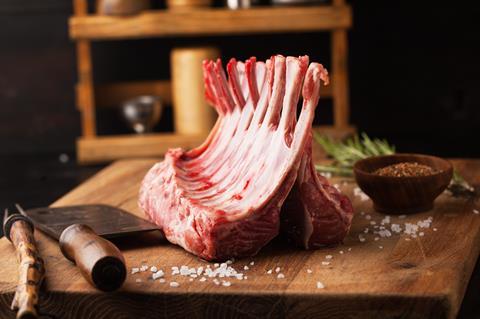The Livestock and Meat Commission (LMC) has published a three-year strategy for the NI Beef and Lamb Farm Quality Assurance Scheme, which aims to simplify audits, cut paperwork and use technology to “improve how assurance is delivered”.

Following the publication of the UK Farm Assurance Review in early 2025, LMC looked to “keep Northern Ireland’s unique farming systems at the heart of decision-making” with its new three-year strategy.
According to LMC, the United Kingdom Farm Assurance Review (UKFAR), published in January 2025, marked an “important milestone” for the future of assurance schemes across the United Kingdom. The report set out nine strategic and 56 operational recommendations, which collectively aim to modernise and streamline assurance frameworks in a way that supports farmers, improves efficiency, and maintains robust standards.
Among the key recommendations were the simplification of farm audits, the adoption of data and emerging technologies, and a strengthened role for farmers in shaping future standards. These objectives are closely aligned with work already identified and underway in Northern Ireland through LMC and the Northern Ireland Beef and Lamb Farm Quality Assurance Scheme (NIBLFQAS).
From the outset of the UKFAR process, LMC said it made clear its commitment to take forward any relevant recommendations as directed by the FQAS Industry Board and the LMC Board.
LMC head of quality assurance, Gillian Davis, commented: “It remains our position that any response to the UKFAR must be proportionate, specific to the needs of Northern Ireland, and based on a demonstrable requirement for change. Striking a balance between the cost to industry of implementing changes and their potential to deliver meaningful results aligned with the scheme’s aim of providing maximum market access for the minimum audit burden.”
Prior to the publication of the UKFAR, LMC and the FQAS Industry Board had already identified several priority areas for development. These have since been formalised within the new FQAS Strategy, a forward-looking plan that will guide the scheme’s direction of travel over the next three years.

Davis continued: “The strategy includes a comprehensive review of standards using a revised methodology to ensure that each standard either adds clear value or can be evidenced more efficiently. A key focus is on reducing paperwork and making better use of data and technology to improve efficiency across assurance processes.
“It is essential that the development of assurance schemes continues to recognise the unique nature of livestock production in Northern Ireland. Our farms tend to be smaller, with grass-based systems predominating. These are fundamental strengths of our industry and must be recognised within assurance schemes across the United Kingdom and by our customers in the Great Britain market.”
Strong and effective communication with farmers remains a priority for FQAS, said LMC, as the Ulster Farmers’ Union, National Beef Association, National Sheep Association and Northern Ireland Agricultural Producers’ Association are all represented on the FQAS Industry Board and the Standard Setting Committee. This ensures that stakeholder voices are at the heart of all decisions taken in delivering a scheme that reflects the structure and needs of the local beef and sheep sectors.
Davis added: “The FQAS Industry Board has given its full support to the new strategy and is committed to delivering the relevant UKFAR recommendations over the next three years.”
NIBLFQAS will reportedly continue to evolve in response to policy and market developments, and will aim to meet the expectations of stakeholders while achieving the highest standards and securing maximum market access with the minimum burden placed on farmers.















